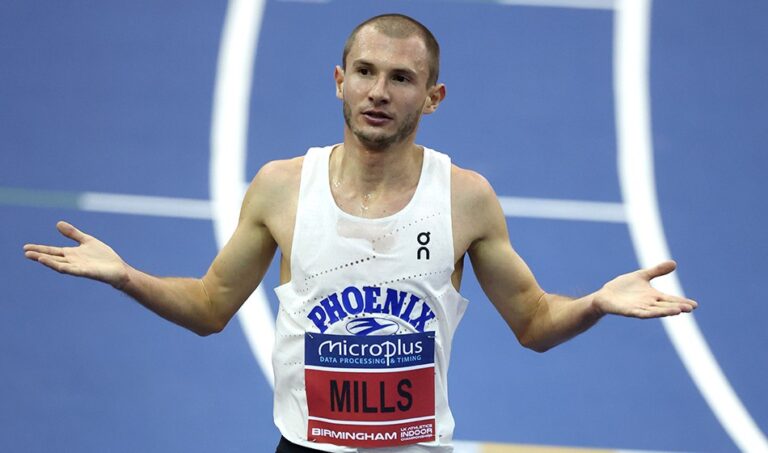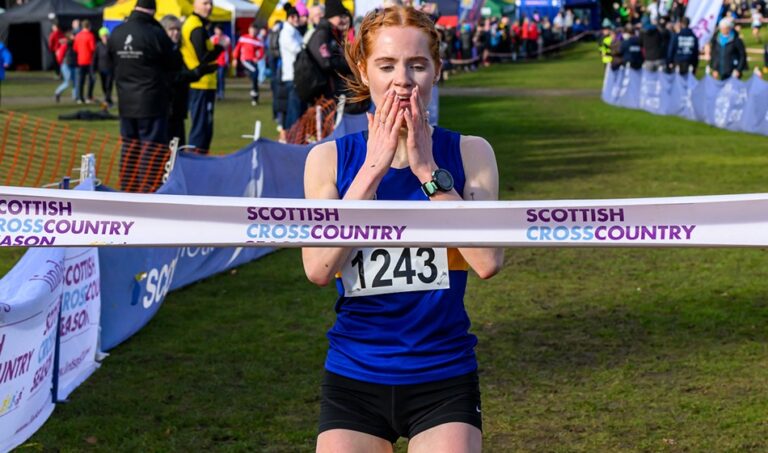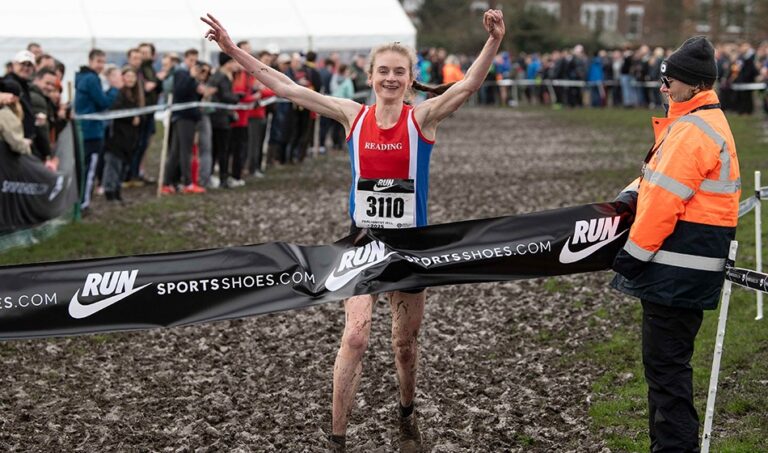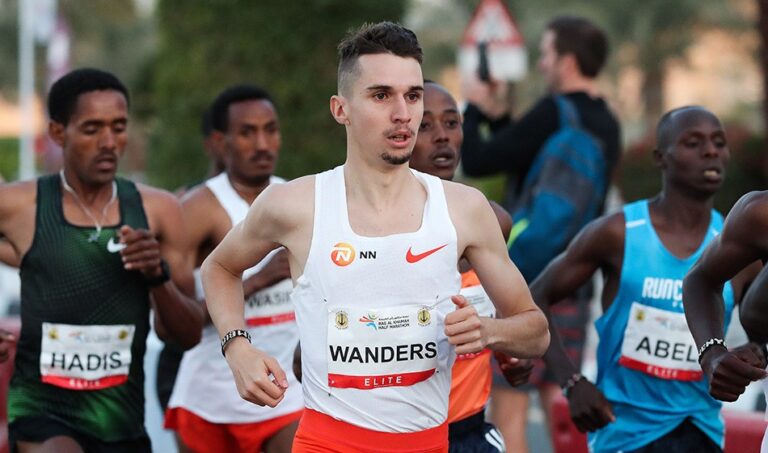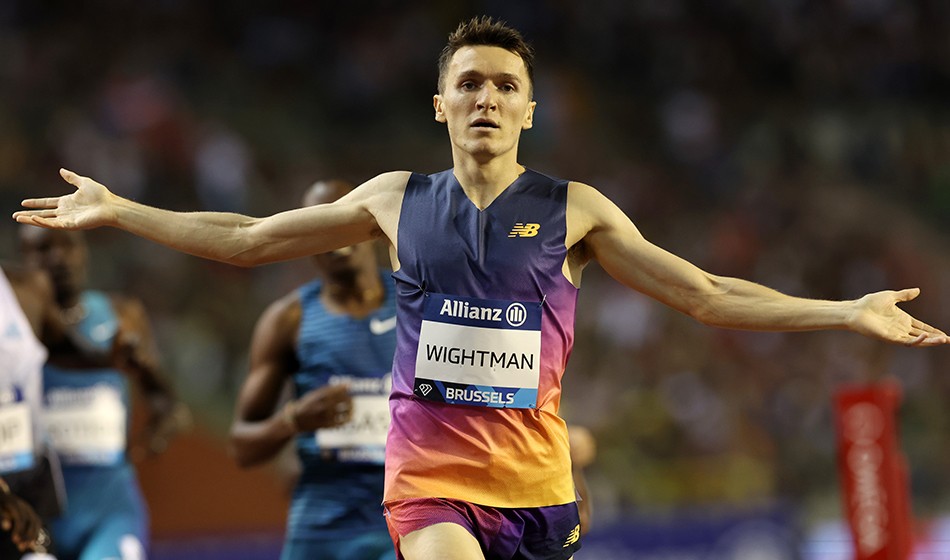
The 2022 world 1500m champion also emphasizes why the Keely Klassic is so important to athletics in the UK
Jake Wightman has stated that he’d “hate for athletics to just be considered an Olympic sport” and “athletes also have a responsibility to keep the momentum going”.
Earlier this month, the 2022 world 1500m champion talked through the disappointment of having to miss the Olympics due to injury on his YouTube channel, which sparked hundreds of supportive comments.
Many of those focused on the authenticity of Wightman’s message, with one saying the Brit was “open, honest, self-deprecating”.
After a myriad of setbacks in the past couple of years – a serious foot injury wrecked his 2023 season before a small tear in his right soleus stopped him from competing at Paris 2024 – Wightman is eager to build himself up slowly this year.
Jake Wightman
His first major test on a global stage – Wightman opened his season with victory over 3000m at the Scottish Indoor Championships – comes over the same distance at Sunday’s New Balance Indoor Grand Prix, before he tests himself in the mile at the Millrose Games.
The 30-year-old then attempts to regain his British indoor 1000m record at the Keely Klassic in Birmingham – Charlie Grice holds the current mark with 2:17.20 – and believes the event is the kind of thing that can boost athletics in the UK.
Here’s our exclusive interview with Wightman below:
Jake Wightman (AthleticsImages)
How’s the training all going and how are you feeling?
Before coming out to Potchefstroom, I did an indoor 3000m race in Glasgow as a tester to see where I was. That went better than what I hoped it would. I’ve been trying to not do too much because I feel like I’m in a good place. The main thing for me is that I just wanted to get back to racing.
Having last season cut short like that was disappointing and it made me realize that if I have the chance to go to a championship, I have to take every opportunity. That’s what I’m hoping to do this indoor season. I’m hoping it’s not just a stepping stone for outdoors and it’s a good season in its own right.

Jake Wightman (Getty)
How much does it mean to be back after so many injuries?
This time last year, I’d have probably said the same, in that ‘I feel like I’ve turned over a new leaf and I’m ready to go again’. It’s given me more awareness now that I probably need to look after my body more than I thought I did.
I’m now in a position if I do get problems, it’s making sure it’s not a big injury. So I’m excited to go into the year. I’m now 15 minutes away from an indoor track in Manchester compared to an hour and a half in London. I also don’t want to put too much pressure on myself as it’s about building my confidence and getting back to competing.
The tough bit in 2023 was that the season, in itself, was a test for 2024. To then have to pull out through injury just a week before the Olympics felt cruel. In the grand scheme of things, and no one deserves anything bad, I felt like I did so much to stop that from happening.
I felt like I’d served my time in 2023 so that was a low point in my career. It wasn’t a case of quitting the sport as I feel like I’ve still got something to prove and I’ve got a few good years left in me.

Jake Wightman (Getty)
What have you made of the middle-distance landscape in the past couple of years?
I think the 1500m has collectively moved on [since winning gold in Oregon]. Similarly, in the 800m, it’s not just one or two people moving on with the times. Everyone is running a second or more quicker each year. If I’d have had the chance to race full seasons then I’d hope I could’ve moved on with it.
For example, I won my world title in 3:29.23, and then to get an Olympic medal you had to run 3:27.80. Everything has progressed and there’s obviously a lot of reasons for it. I’m sure both the 800m and 1500m world records will go in the next five years. That’s the nature of all sports. It has to keep progressing and developing and the only thing you can do is believe you can rise to the occasion.
Where are you with all the distances right now and is the 1500m still the main focus in this campaign?
The 1500m is what I’m primarily going to be focusing on. The 800m is very tough and that’s what I struggled with in the build-up to Paris. I’ve been a 1:44 runner and you’ve now got guys doing 1:41 and 1:42. If I did the type of training in January to get those times, my body wouldn’t be able to cope with it.
The 3000m is also a test and not something I think I can be super competitive in on a consistent basis. So the 1500m will be the distance for me. I’d love to be able to run a good 800m outdoors at some point but it is quite demanding to get to those speeds. Running over 1000m will also give me a good idea of where I am over 800m.

Jake and Geoff Wightman (Mark Shearman)
What kind of training have you done in Flagstaff and Potchefstroom to get to this point?
A lot of the stuff I do probably doesn’t look great on paper in all honesty. However, it’s effective. I haven’t done a huge amount of track stuff so far. There’s probably only been one session on the track per week for the last month and a half. I’ve been doing quite a lot of hills as well.
I need to build my way into the season. I’ve been doing longer tempos, more mileage, and greater long runs in training. Then, all of a sudden, you’re expected to transform into this track athlete. I need to realize the demands I have right now aren’t the same as getting ready for the Olympics. I can’t compare myself to that period.
I’m hoping Boston is a good idea of where I am and then it’s about building up to championships in the indoor season. That’s where my strengths are as well.
Are you fairly confident you can regain the British indoor 1000m record?
I hope so. I met Charlie Grice out in South Africa actually and I was saying to him ‘it’s mad how you ran that time [2:17.20] five years ago’. I think that a lot of people could give that record a go if they tried. I think, ‘okay if you compare my outdoor personal best [2:13:88], it’s not bad’. But indoors is a different animal.
My main aim is to firstly win the race as it’s expected to be a strong British domestic field. If it’s a quick race, with that depth, then I feel you’ll have to run a national record to win it. It’s exciting as we don’t get these opportunities over 1000m a lot.
How significant is the Keely Klassic, especially that Keely Hodgkinson has transcended the sport?
We’re so used to having these big world indoor tour meets so if there’s something else we need an event that stands out. I think the Keely Klassic does that. It’s only right Keely has her own meet. I mean, winning BBC Sports Personality of the Year against all of those names shows that athletics is doing well because of her.
It’s great that we’re getting to race in front of a lot of people. I think this will be Keely’s first race since the Olympics so that’s also a big deal. I’m hoping it’s different and really has that buzz from Paris, as it’s easy for it to die down. You can watch all the athletics in Paris and then not watch a lot of it afterward. So you need events like this to keep people interested and interacting with the athletes.
What kind of things would help people follow the journeys of athletes outside of just the Olympics and other major championships?
I’d hate for athletics to just be considered an Olympic sport, which a lot of people would label it as. I think that if it got relegated to the tag of ‘Olympics’ on the BBC, it’s a sign that sport isn’t holding its own.
I think the indoor environment is the perfect chance to play around with the format and make sure the sport evolves. It’s a closed arena and people don’t need to worry about being sat a long way from the action. It’s pretty intense and you can be creative with the lights and the music as well. You want to make it as action-packed as possible.
If athletes are doing a good enough job, then it’s also our responsibility to keep the momentum going. Keely does a great job on her social media channels. I try my best with my YouTube channel as much as possible.
It’s great during the Olympics because every broadcaster in the world is following the sport. They put you on pedestals but then you’ve got to utilize that platform. These sorts of meets give you a chance to race and you’ve got to give those watching a reason to care about you off the track as well. That’s just the nature of all sports nowadays.

Jake Wightman with parents Susan and Geoff (AthleticsImages)
How easy was it to create your Youtube channel and how’s the feedback been?
After the World Championships in 2022, I felt like I had a responsibility to give people more than just what they saw on the track. I’d had a good summer and I hadn’t been that great on social media over the years. A lot of it went through Instagram and Twitter, which felt forced and disingenuous.
So I created the Youtube channel, not just to showcase training but also all the personalities in my life as well. You don’t want to see robots racing on the track. I also wanted to present the bad bits as well as it can give a false impression by just emphasizing the good parts.
In my last video, I wanted to open up about how disappointed I was about last summer, which helped me process the whole thing. We are human beings with emotions and it’s important to showcase that. It’s all part of the journey.
You can digest a lot more about somebody from a 15-minute video and not a still picture or even a small clip. I feel we can portray ourselves authentically. A lot of people presume that runners are boring individuals who live mundane lives but we’re not. I hope that the next generation of athletes continues that trend as it will help get new fans into the sport.

James Dargan and Jake Wightman (LM Events)
What are your big goals/ambitions in 2025?
I’ve come to a point where I know I’m in the last few years of my career. I’ll keep doing it for as long as I feel competitive at the elite level. I think the most disappointing thing is that I’ve operated at that mark but I haven’t been able to showcase that on a more consistent basis, with injury taking that away.
I’m now just focused on building myself up to where I should be and hopefully, that culminates in a September World Championships in Tokyo. I have to get through each race this season, as there’s no point in being an injured athlete who’s extremely fit.
I also have to think about what I do beyond competing now. I don’t know in what capacity but it will be a shame to have operated at this level and not try and pass my own thoughts to younger athletes and to those who can change the sport for the better. I’m not going to disappear from it completely.


